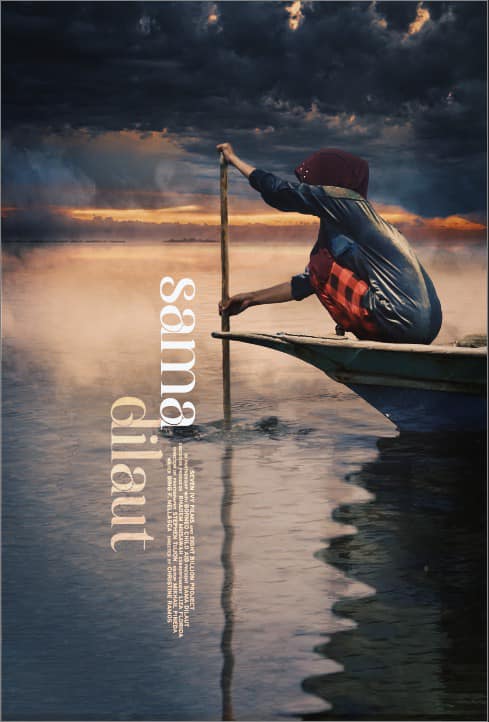Fresh from its wins at international film festivals, the documentary film Sama Dilaut, which explores the plight of the semi-nomadic Sama Dilaut people (also known as Bajau) of Mindanao, had its Philippine premiere on 30 May at the EDSA Shangri-La Plaza Red Carpet Premiere in Mandaluyong City.
Sama Dilaut follows the lives of the Sama Dilaut people as they are forced to surrender their sea-dwelling life due to armed conflict, environmental degradation and the rise of commercial fishing in the Sulu Sea. The film recently won awards at the Toronto International Women Film Festival and the Berlin Indie Film Festival and received critical acclaim from other international film festivals.
“Telling the stories of the underserved and underrepresented communities of the world is my small contribution, as a woman filmmaker, to the protection of their cultures and way of lives,” said the film’s director, Christine Ramos, of Seven Ivy Films. “We have to help avoid the dissemination of indigenous cultures of the world from the fast and overwhelming pace of modernization.”
“The biggest conspiracy theory today is that everything will be okay,” said climate educator Michael Dawila Venning of the Indigenous Communities Learning Center.
As part of their ongoing efforts to encourage climate action, the Embassy of the Kingdom of Belgium in Manila partnered with the filmmakers to host the Philippine premiere followed with an expert panel discussion, “Beyond the Sulu Sea,” after the film screening.
“Just last 23 March, Belgium provided a three-million-euro grant to help the United Nations Environment Programme address the climate crisis. This is because we want more climate ambition
worldwide. We increase climate funding to further our efforts towards a new global early warning system for climate-related disasters, because countries like the Philippines suffer most weather extremes due to climate change. Sama Dilaut shows this issue and we believe that it is an important conversation to be had as well as an awareness to be raised,” shared Belgian ambassador Michel Parys.

Ramos; lawyer Tom Temprosa, director of the Human Rights Commission; and Venning comprised the panel, which discussed the creation of the documentary and how the global community can mobilize help to all underserved communities.
Rhadem Musawah, a Moro human rights defender, humanitarian worker and the executive producer of the film, said they faced many challenges in producing the film.

“I have struggled raising funds in the Philippines for topics like these [climate change and
indigenous people] but with the help of my friends Christine Ramos, Liza Florida and the rest of our crew along with Seven Ivy Films, Eight Billion Project, Mujer LGBT+ Organization and Indigenous Community Learning Centre, we were able to come up with the funds and human workforce to make this film come to life and to show the world what climate change looks like, and what kind of future awaits our future generation,” he said.
Written by Bing F Nellasca and Nikki Limlenco, the documentary film highlights the importance of saving the sea as the lives of many depend on it. Produced by Seven Ivy Films with Eight Billion Project and in partnership with several organizations including Borneo Child Aid, it will be shown around Europe after its Philippine premiere.
